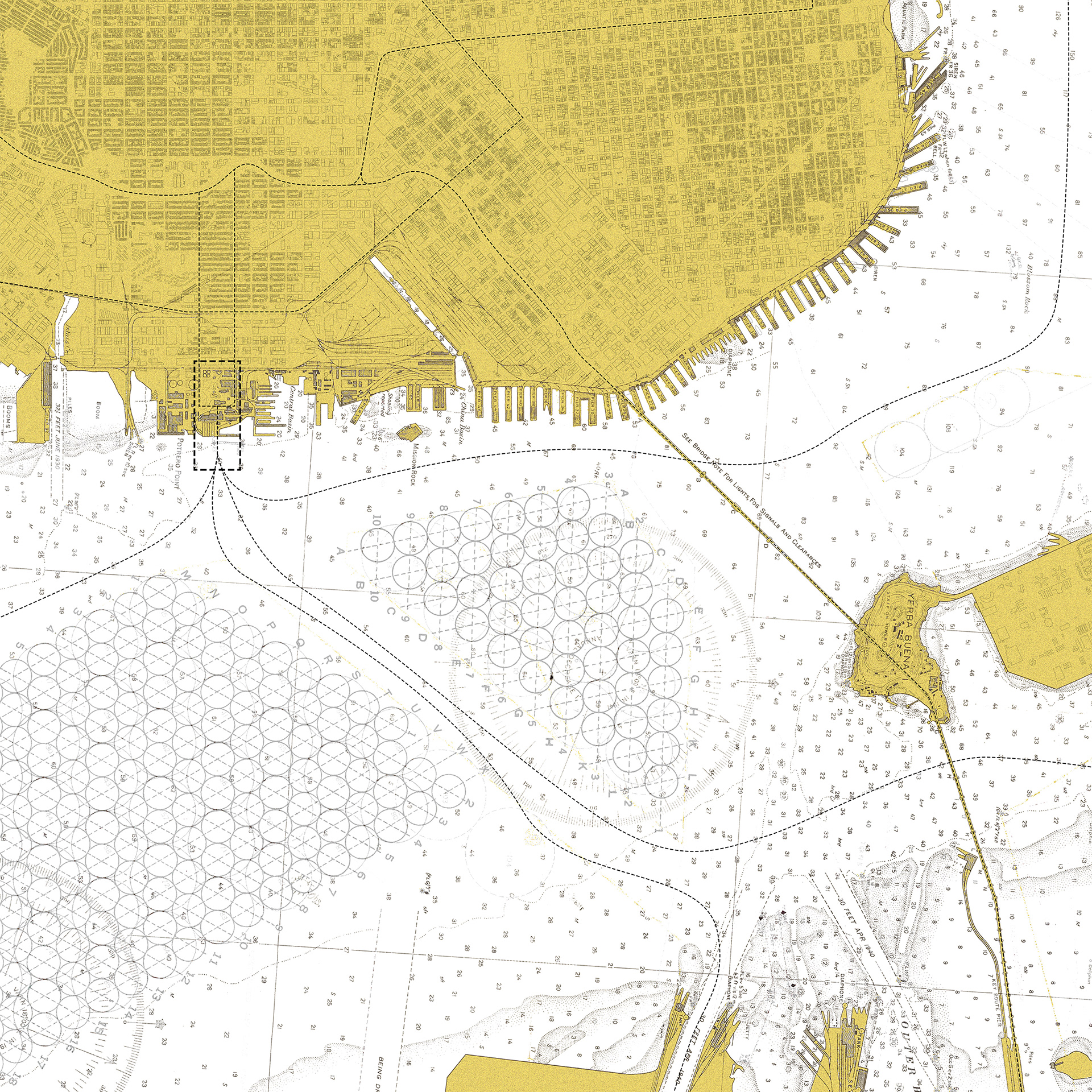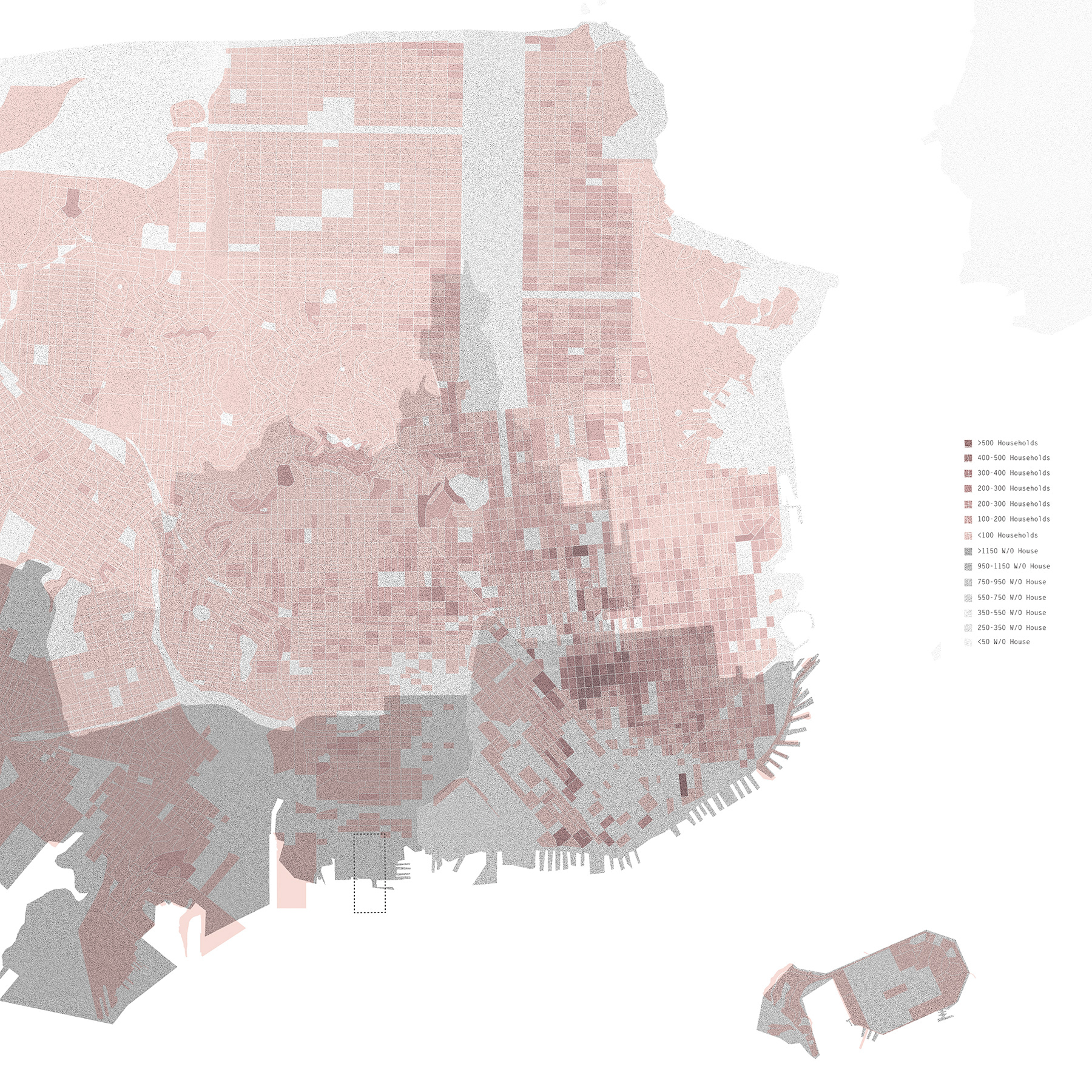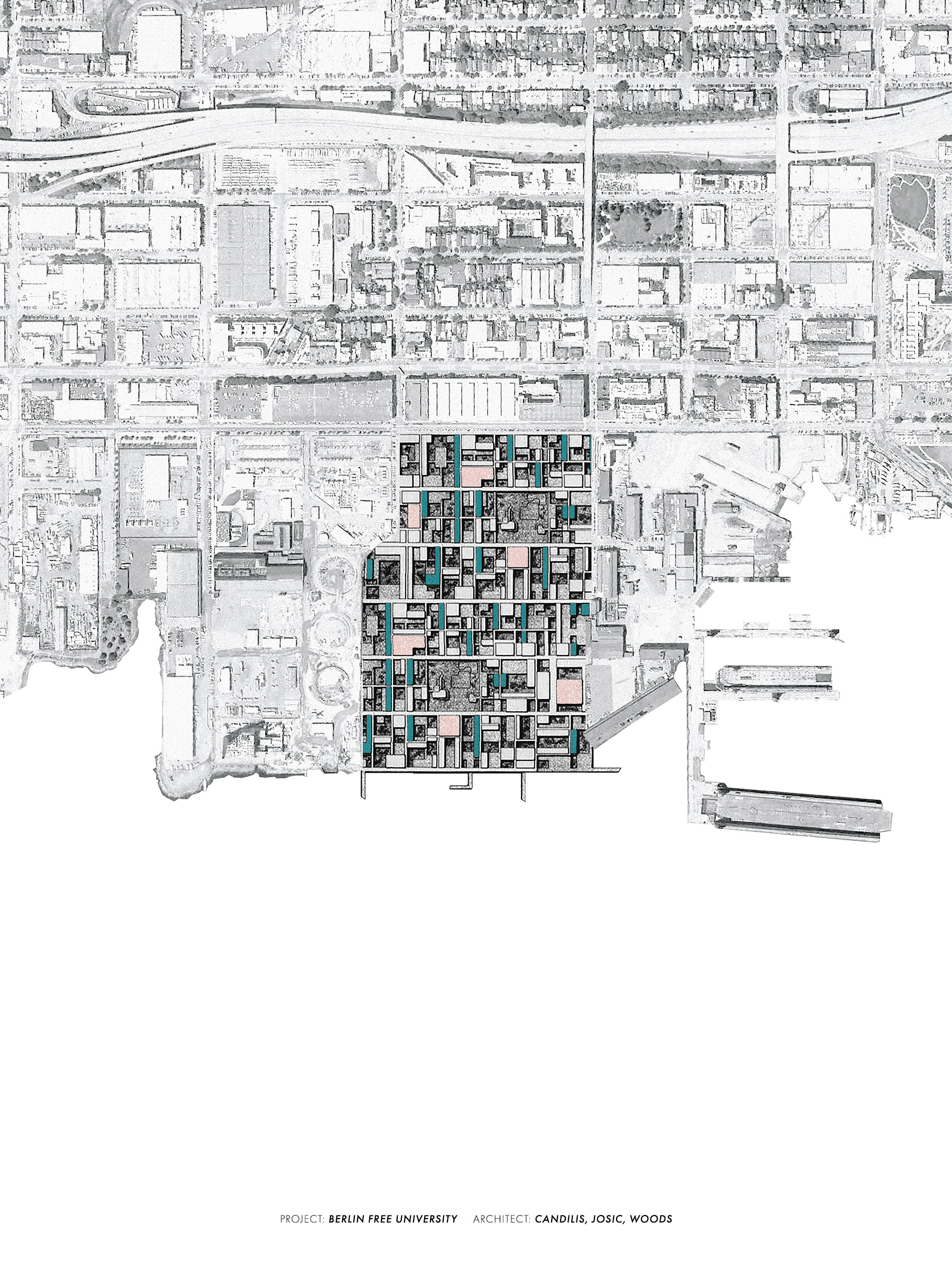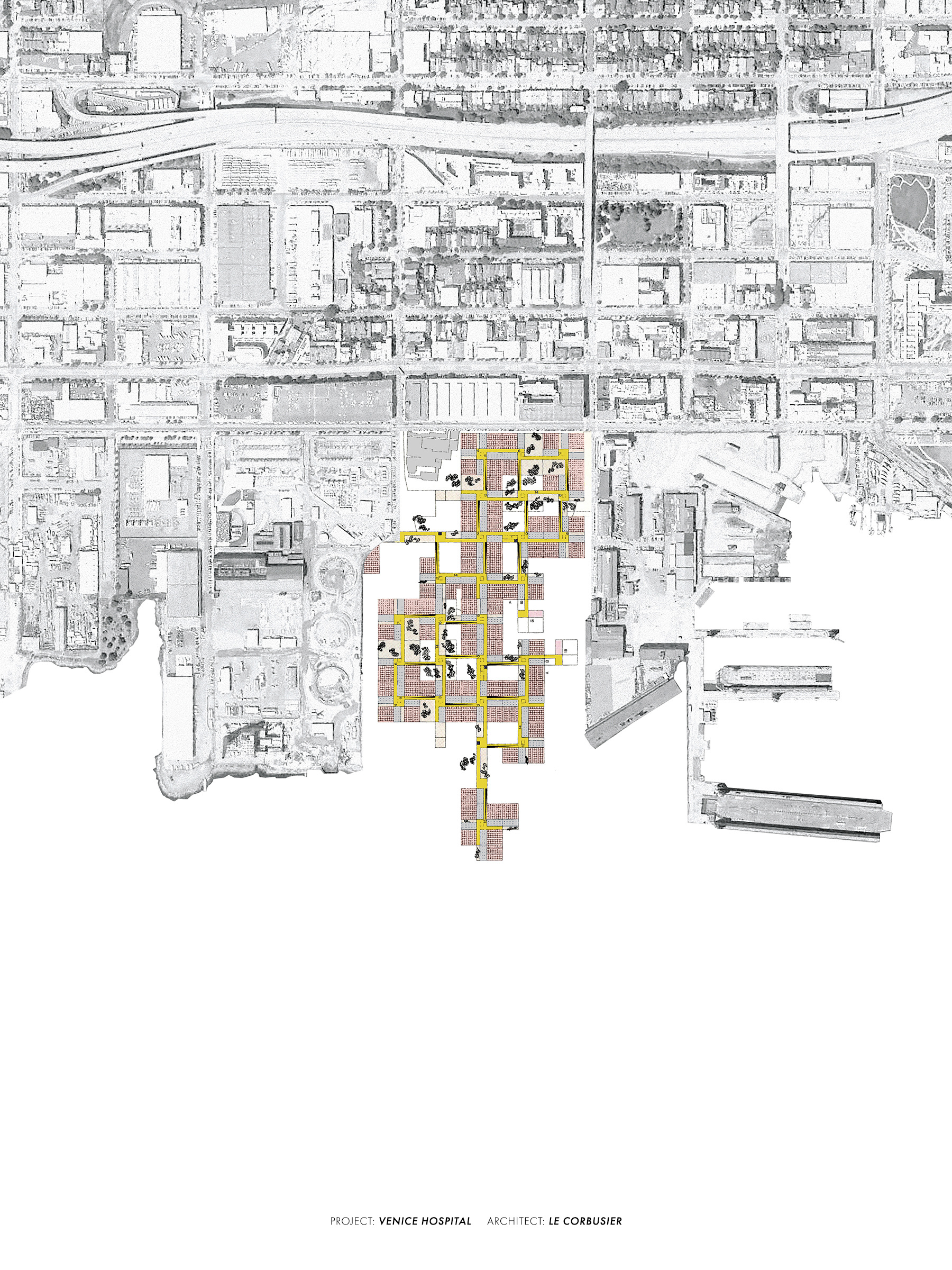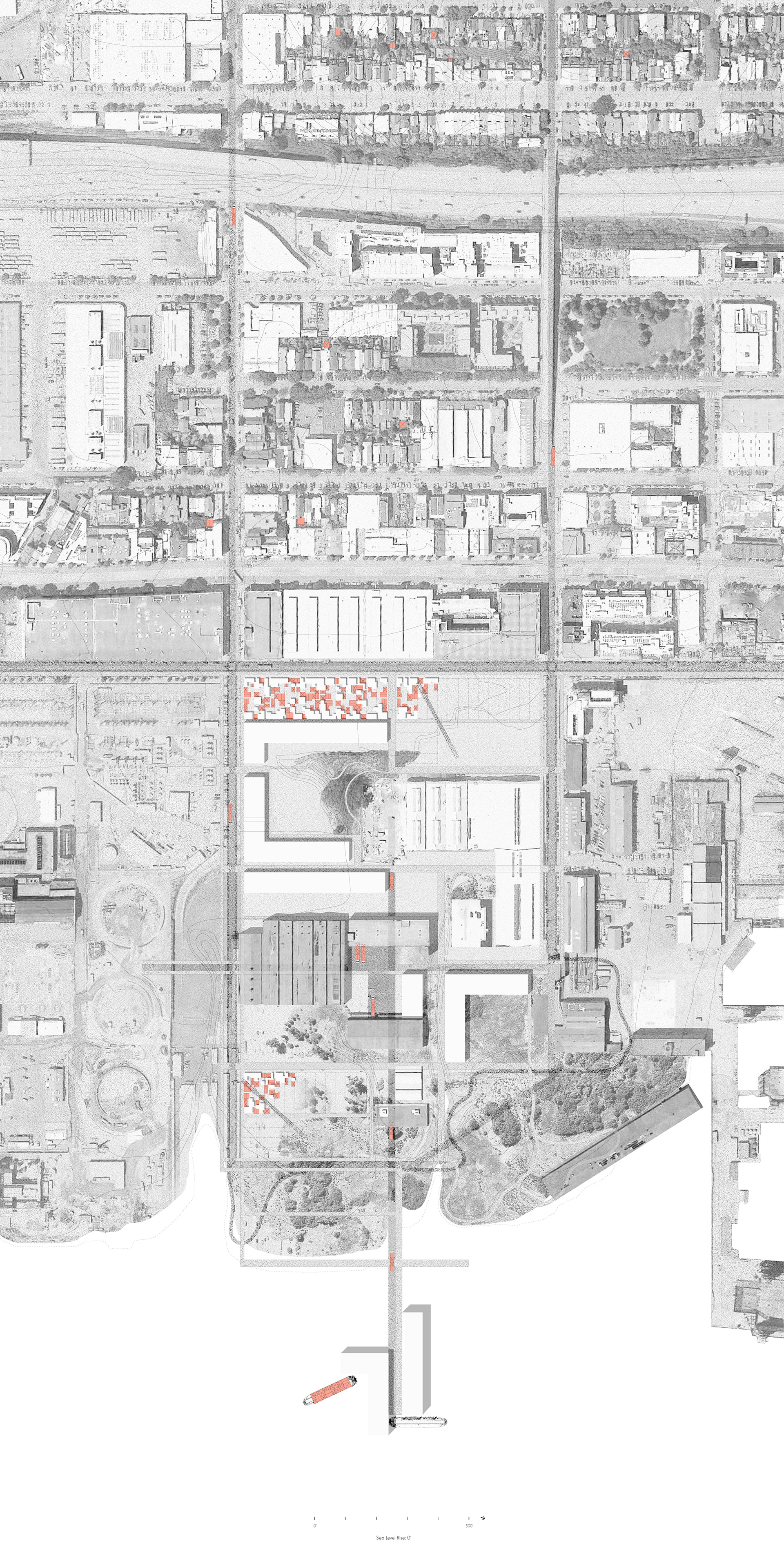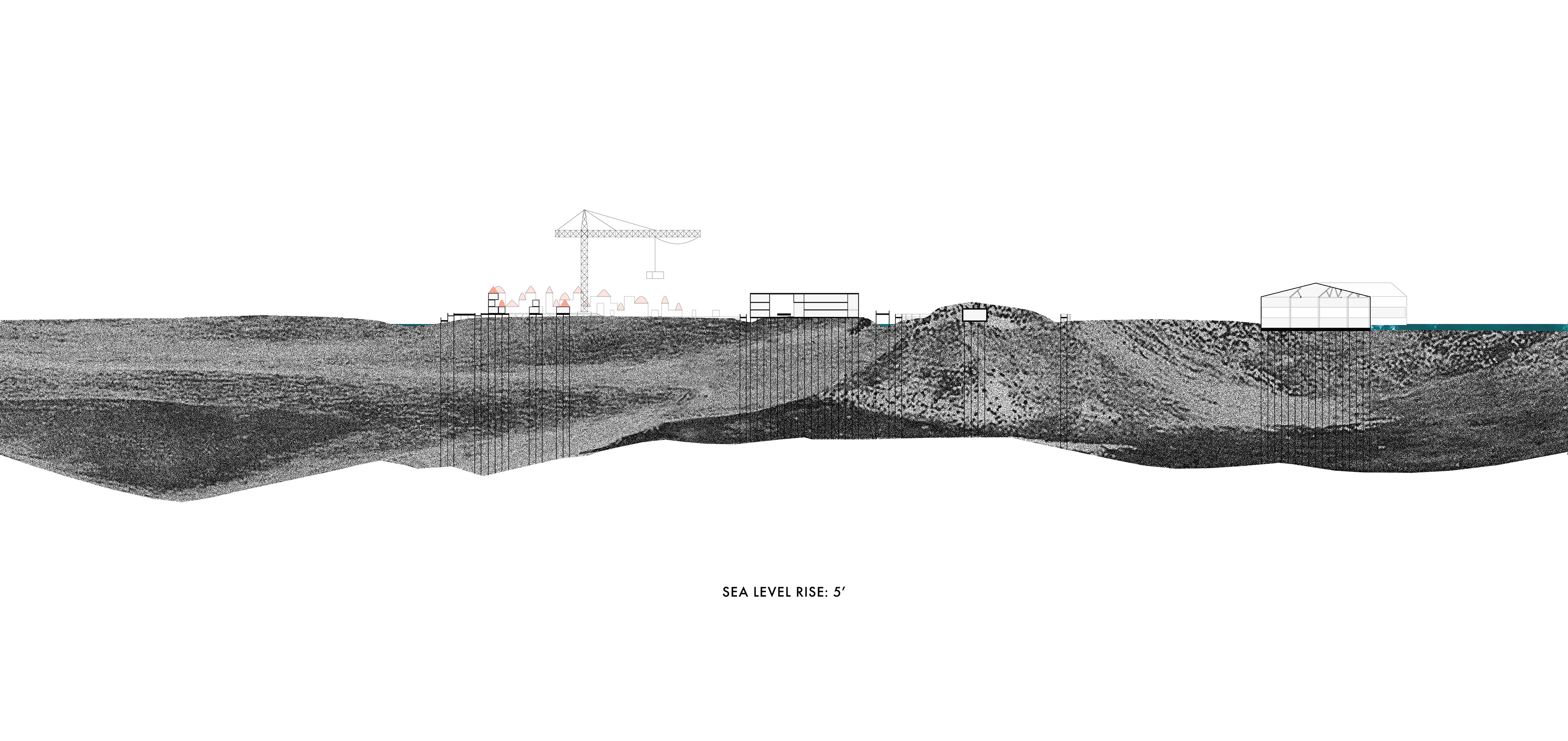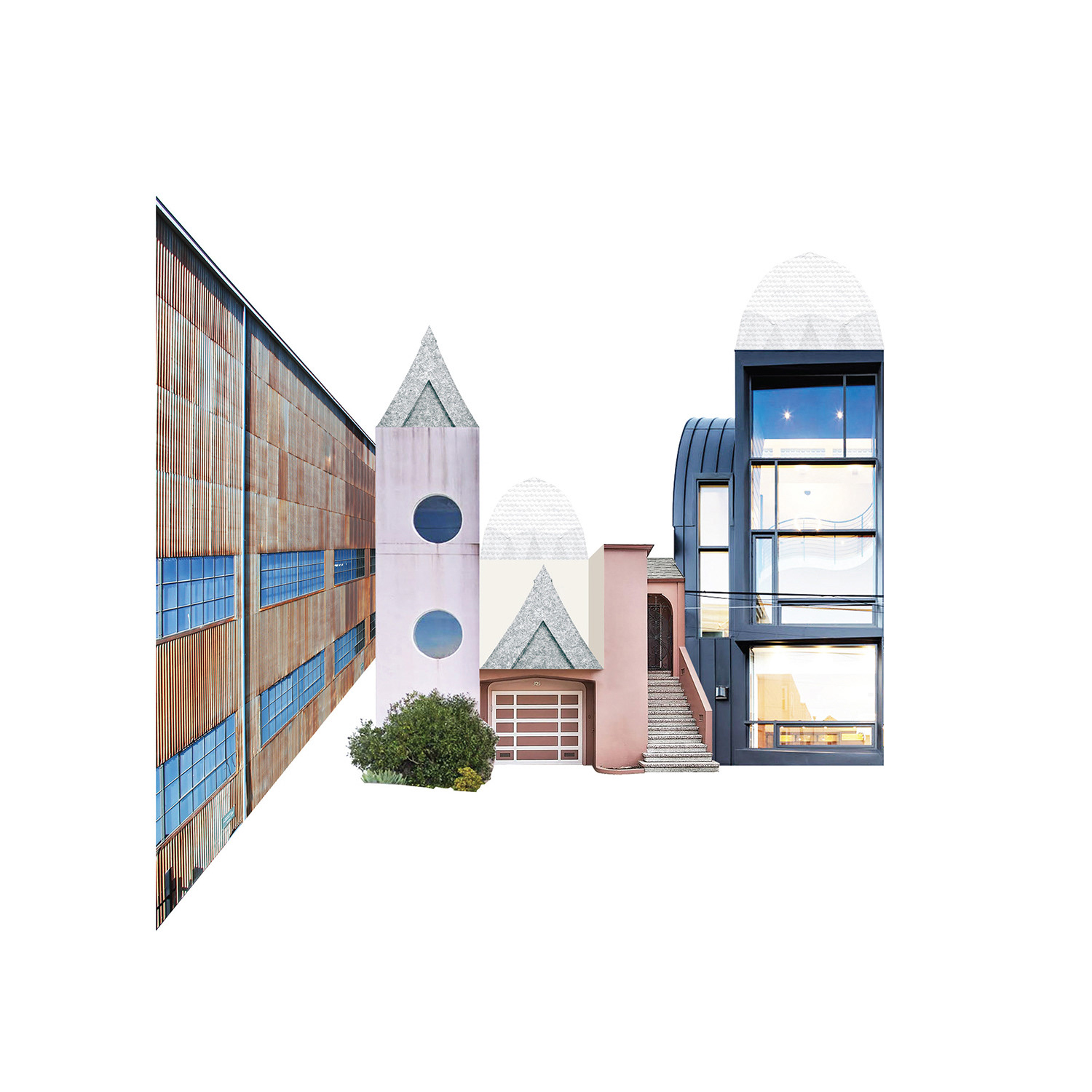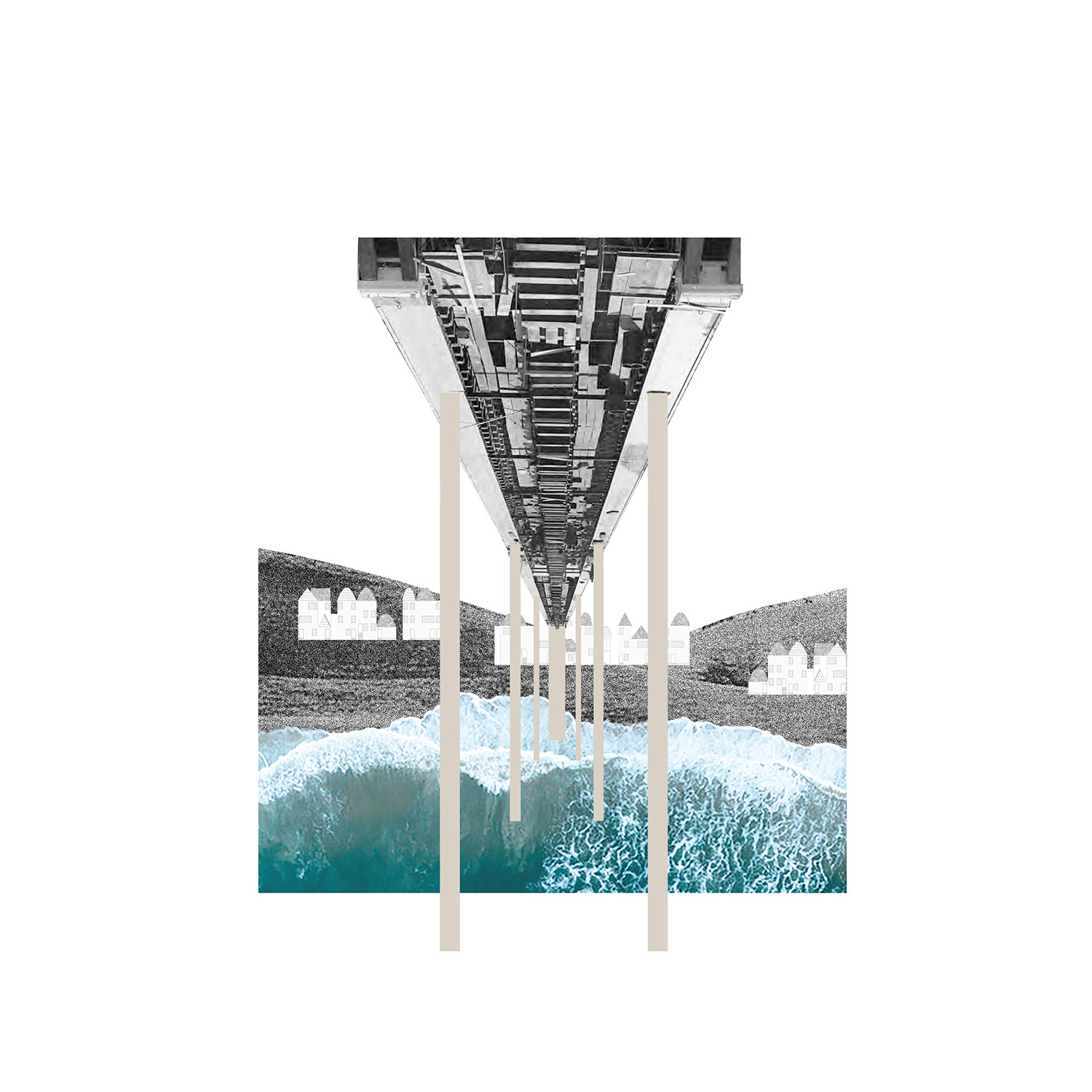FABRIC CITY
SAN FRANCISCO --- FALL 2018 --- UNIVERSITY OF CALIFORNIA, BERKELEY
A new housing typology made of fabric and plastic tensile structures to tackle the Bay Area housing crisis quickly, affordably, and autonomously.
By economizing the typical programs found in a house, spaces that don’t need to be permanent, like bedrooms and living rooms, can be made more flexible, simpler, and thinner. As these rooms act as individual modules, they can be integrated in new construction, added onto existing buildings, or fill in backyards as accessory dwelling units.
The site, San Francisco’s Pier 70, becomes a place where these rooms will be manufactured and distributed from across the city – a sort of homage to its history as a shipyard. Rather than a static formal proposal, the site then becomes a generator for productivity and development.
At a smaller scale, the project examines existing typologies specific to the site and Bay Area at large. The formal language of the modules intends to mimic these typologies, while materially diverge from them, in hope to reveal and call into question their own institutions. While the in-fill mode of construction intentionally entertains present anti-development and preservation-centric attitudes, it simultaneously undermines them. Fabric City poses a possible future centered on a less precious, less permanent, less territorial idea of home, where stigmas are dismantled and our acts of living-in can be more democratic and less tied our own identities.
